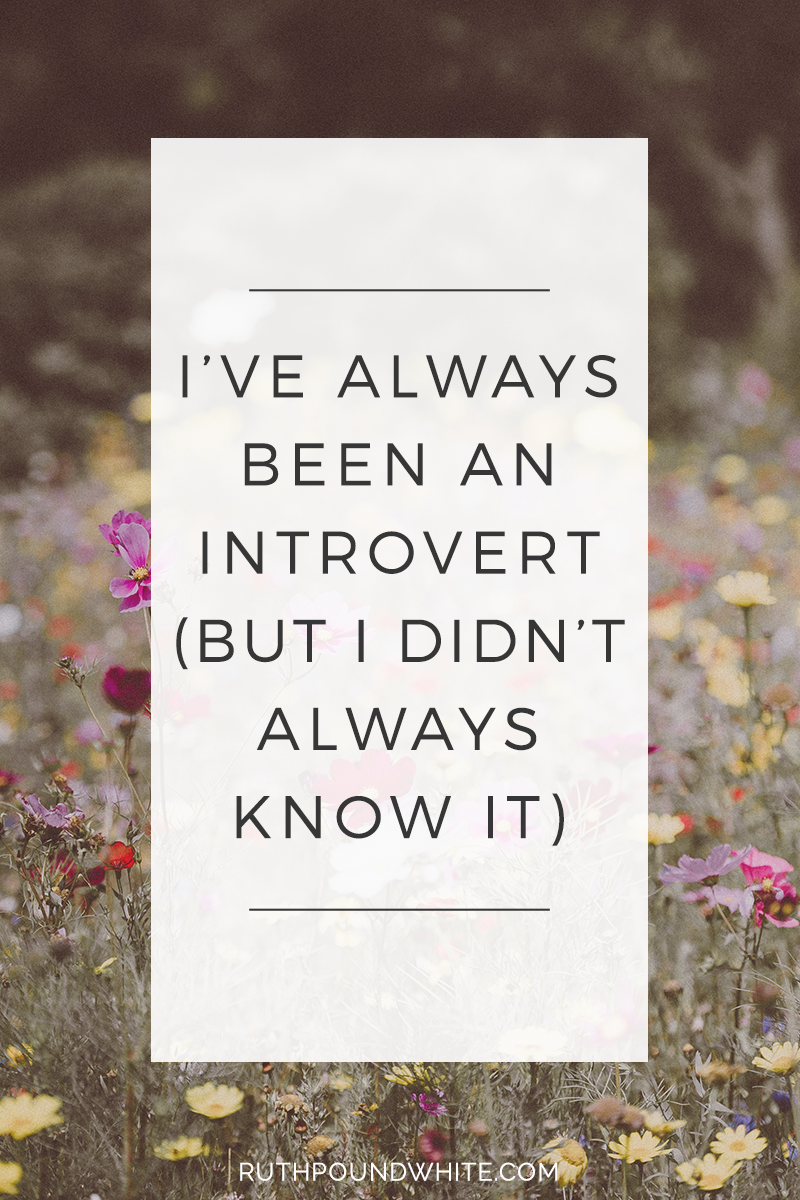One of my most defining personality traits is, I think, being a huge introvert. I don’t always go for labels, but this one fits me perfectly.

I hate small talk. I get totally exhausted after certain social situations (despite enjoying many of those situations). I get my energy from time spent alone, rather than time spent with others. I’d often rather stay at home than go out with other people. I’m also quite shy.
These are all classic traits of an introvert, yet growing up I had absolutely no idea what an introvert was.
I knew I was shy, but shy to me was a weakness. A lack of social skills. Something to be overcome, so that I could fit in better with everyone else. I’m not sure that anyone ever said these things to me directly, but that was the message I internalised as a child.
I also knew that I found it hard to speak up in a room full of voices louder than mine. At school parents’ evenings teachers would say I was quiet like it was a character flaw. At university, I assumed people were louder because they knew more than me, that they had stronger (and better) opinions than me. So instead of speaking my opinion, I assumed it wasn’t valid and I kept my head down in my own work.
I didn’t realise that the only reason I didn’t think the quiet people could have informed opinions was just because they, like me, didn’t always voice those opinions. That our schools, our businesses, our culture is set up for the extroverts, and that the introverts need to fit into a mould that wasn’t designed for us.
Of course, it’s not as simple as I’ve just made it sound. Nothing is black and white, and not everyone fits the broad categories of “introvert” and “extrovert”. Nor am I saying that extroverts have everything easy.
But I am sad to realise now, as an adult, that I grew up thinking there was something wrong with me when there really and truly wasn’t. It wasn’t until I was 25 and I read Susan Cain’s book “Quiet: The Power of Introverts in a World That Can’t Stop Talking” (she also has a TED talk) that everything made sense.
Finally, I realised that there were other people like me! Finally, at those times when I really needed to be alone for no particular reason, I could tell people it was because I was an introvert (not just weird). I started voicing my opinions more, because I realised that it is still possible to be thoughtful and intelligent even if I don’t always want to talk.
And I even started spotting other introverts around me. It was good to know I was not alone, and fascinating to learn that introversion is the norm in countries like Japan (which might be one of the reasons I loved travelling there so much).
The problem with introversion is that, by its very nature, it usually means you’re less likely to share your thoughts, opinions and personality with a wider audience. I’m super reserved and private, and I think I have that in common with many other introverts (though not all of them, of course).
When you’re part of a group of people who don’t talk much about themselves, you run into the problem of not seeing other people out there like you. Not knowing that you’re completely normal. Because the other group are mostly quite happy to talk about themselves (as they should be!), that’s the message we hear.
So I’m pushing myself out of my comfort zone and posting this in the hopes that being seen as an introvert can help anyone else realise that they’re not weird, they’re just different from the people they see and hear from most often.
Thanks to Ray Dodd’s comments to me in her awesome Taking Up Space Online eCourse for inspiring this post!

